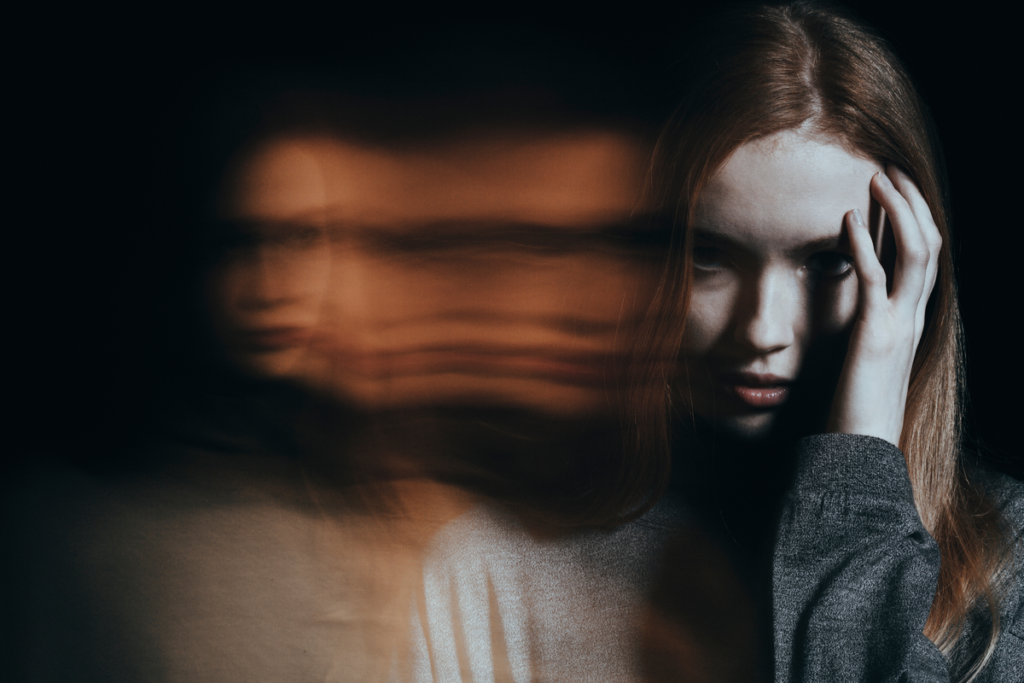Amphetamine-Induced Psychosis: Symptoms and Treatment


Written and verified by the psychologist Ebiezer López
Amphetamines are a group of psychoactive substances that have different effects on the body. They can be used either medicinally or as recreational drugs. In both cases, they have a wide range of likely side effects. One of the most serious is amphetamine-induced psychosis. This is a mental disorder derived from the use of these drugs.
Because the condition is related to drug use, it’s different from other conditions, such as schizophrenia or delirium. In fact, the symptoms, their duration, and their intensity vary significantly. Furthermore, the treatments are different.
Amphetamines and amphetamine-induced psychosis
Amphetamines are a group of substances that stimulate the nervous system. They’re prescribed in the form of medicine to address conditions such as attention deficit hyperactivity disorder (ADHD), obesity, and narcolepsy. On the other hand, they’re often used as recreational drugs or to improve sports performance. However, it should be noted that their use for performance or recreational purposes is punishable by law.
These types of substances cause a sensation of ‘acceleration’ throughout the body. When consuming them, people describe feeling energetic, sociable, and happy. They also claim to think more clearly. That’s why some people turn to them to study or to be more active.
However, like any other psychoactive substance, amphetamines have side effects. The most common are addiction and dependence. In addition, it’s possible to develop amphetamine-induced psychosis. This can happen whether the drugs are prescribed by a doctor or used illegally.

Symptoms of amphetamine-induced psychosis
Symptoms of amphetamine-induced psychosis can be similar to those of schizophrenia and other disorders. However, it’s important to differentiate between an amphetamine-induced psychosis and a common one. Because misdiagnoses can lead to incorrect treatments. The most common symptoms are the following:
- Delusions. In this case, paranoid and persecutory delusions frequently occur. For example, patients may claim that people are following them in order to do them harm. They also might experience referential thinking, when they believe that certain events are connected with them, even if there’s no evidence of this.
- Hallucinations. The most frequent are auditory and visual. However, they can also be olfactory, kinesthetic, or tactile.
- Obsessive-compulsive behaviors. Some patients may develop certain compulsive habits such as excessive cleaning or the pulling out of their hair (trichotillomania).
The most important difference between common and amphetamine-induced psychosis is the presence of negative symptoms. We speak of negative symptoms when the person can’t perform certain processes normally when they should be able to. For example, not being able to have a coherent conversation or to follow a train of thought.
Causes
The consumption of amphetamines produces several reactions in the body. The main one is the release of dopamine. This neurotransmitter is released in large quantities and produces the symptoms we mentioned above. Once the effects wear off, the dopamine decreases. In fact, repeated consumption of amphetamines gradually depletes the natural reserves of this neurotransmitter. This is when tolerance develops and patients have to increase the dosage to experience the same effects.
Following along the same lines, it’s been established that dopamine secretion stimulates the temporal lobe and the amygdala. In this way, excessive consumption ends up altering the brain functions of these areas. This affects hearing capacity and emotional management, among other processes.
Risk factors
There are a series of risk factors that, together with consumption, can contribute to the development of amphetamine-induced psychosis.
- Recreational use. One study mentions that recreational amphetamine use is associated with a higher risk of psychosis compared to non-users. This risk is even higher in patients with dependence and who continually use these substances (Rognli and Bramness, 2015).
- Cognitive impairment. Other research indicates that patients with cognitive impairment are more likely to manifest this disorder. Additionally, amphetamine use and psychosis can exacerbate cognitive decline. In turn, this could worsen psychotic symptoms (Bramness & Rognli, 2016).
- Family history. If there’s a family history of psychosis, there’s a greater predisposition to develop any type of psychotic disorder.
- Cross or combined consumption. Cross-use occurs when amphetamines are used together with other substances. As a result, the neurological imbalance is more marked and psychosis is even more likely.

Treatment
Since the main cause of amphetamine psychosis is amphetamine use, the first step is to stop the usage of these drugs. It should be noted that this must always be done under the supervision of health professionals. That’s because, for users, withdrawal can trigger depressive symptoms, and it’s important to monitor them. On the other hand, those who consume them for medical reasons also need expert guidance to find alternative treatments.
Once consumption is stopped, the more acute symptoms, such as hallucinations, soon disappear. However, delusions may take longer to go away.
Evidence shows that the use of antipsychotics can be positive in alleviating psychotic disturbances. However, it’s important to mention that there’s not enough evidence to say that these medicines are 100 percent effective. Along the same lines, some of these drugs have serious side effects that can aggravate these conditions. Therefore, caution should always be exercised when administering them.
Finally, psychological care is recommended in way of psychoeducation for patients concerning amphetamine-induced psychosis. Similarly, psychotherapy can be useful for combatting delusions and working on emotional conflicts associated with drug use.
All cited sources were thoroughly reviewed by our team to ensure their quality, reliability, currency, and validity. The bibliography of this article was considered reliable and of academic or scientific accuracy.
- Bramness, J. G., & Rognli, E. B. (2016). Psychosis induced by amphetamines. Current opinion in psychiatry, 29(4), 236-241.
- Rognli, E. B., & Bramness, J. G. (2015). Understanding the relationship between amphetamines and psychosis. Current Addiction Reports, 2(4), 285-292.
This text is provided for informational purposes only and does not replace consultation with a professional. If in doubt, consult your specialist.








